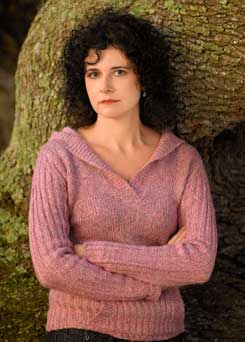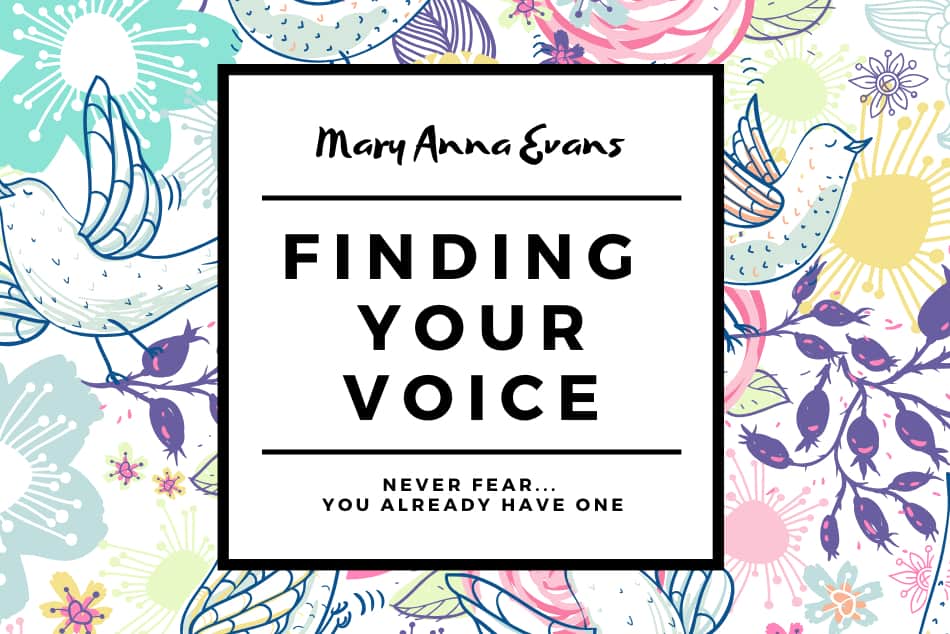Never fear. You already have a voice.
I recently had a conversation with a novelist who was shaken by a comment made by an agent in the process of rejecting her. It went something like this:
“I like what you’re doing here, but the voice doesn’t speak to me. Feel free to try me again when you have something else.”
She, like most fiction writers, had been focused on telling her story the best way she knew how. Her “voice,” or whether she even had one, was far, far from her mind. Now she was worried that she did in fact have one and it was terrible. Off-putting, even. What if this voice that she didn’t know she had was the thing that kept her novel from ever being read?
My immediate response to her had nothing to with her voice, but it had everything to do with reassurance. I said, “You have to realize that this person found something to like in your work because you didn’t get a form rejection. This is worth celebrating! By all means, try this person again with another book! However, agents are human beings with tastes and preferences, and your book just didn’t mesh with those preferences enough for this one to choose to represent you. That’s really all that I think this comment means.”
But she was still nervous, concerned that she needed to work on her voice or develop it or change it radically, so I gave her my opinion on how a writer develops her voice. Now I’ll give it to you.
You already have a voice. This writer was using hers as she spoke to me. I was using mine as I answered her. You use yours when you speak to your friends and acquaintances. And I’m using mine right now as I type. Nobody else sees the world the way you do. Nobody else has your life experiences. Nobody else has your style of speaking, complete with favorite words, fantastical images, and quirky sentence construction.
I firmly believe that all writers need to do to develop their own natural voices is to write. Write the stories that come easily to you. Write the more difficult stories that make you stretch. Just write.
However, I’m a writing professor and if I came to work every day and said, “You don’t need me. Go away and write,” then I probably wouldn’t remain employed for very long. So let me suggest some things that I think will speed up the process of honing your voice, making it the best possible representation of you and your thoughts.
Forget about telling the story for a few minutes and just be your protagonist.
Most modern fiction is written in first person or limited third-person point of view. For these storytelling styles to work, you must make your readers feel that they are living inside the point-of-view character’s head. They cannot see, hear, feel, touch, or taste anything that the character isn’t experiencing. In the best case, you have a strong enough hold on them that they aren’t thinking anything that your character isn’t thinking. In that moment, you are in complete control of everything that your readers experience. So take a break from writing the story and spend some time exploring your character’s experience of the world. You cannot describe every single thing in their field of vision, so you must choose.
Imagine a woman standing on a beach. Around her are children toddling around their parents’ picnic blankets, hot men in Speedos, less hot men who are also in Speedos, and teenaged girls who have untied the strings on their bikini tops so that they won’t have tan lines in their prom dresses. An older couple strolls among them, protected from the sun by neck-to-toe clothing and hats. The air tastes like salt. Dolphins leap between faraway waves and a dead jellyfish is rotting at the waterline. A black cloud is barely visible on the horizon and a cool breeze is starting to blow. Someone is grilling hot dogs, so the air smells like grease and charcoal.
This woman cannot possibly be simultaneously aware of all of these things, plus the infinite number of other things that are happening but that I don’t have space to describe. You’re going to have to pick and choose what to tell your readers. How would you write this scene? And, because description alone is deadly dull, what is going on in this woman’s life that brought her to this spot? Do her feelings reflect the beauty and excitement around her, or is she focused on the dead jellyfish? The choices you make in writing a scene—and this includes word choice and sentence construction—constitute your voice.
Make sure that all of your characters, including your narrator, don’t sound just like you.
Because I am so certain that you already have a voice, I want you to read a good long chunk of your own work—at least a novel chapter or a short story—and soak up the sound of you.
Do you use short, pithy, Hemingway-esque sentences? Or are you more circuitous in your approach to story? Are you long on physical descriptions of characters and settings, or do you take the less-is-more approach?
Once you have a good idea of what you naturally sound like, take a look at your dialogue. Do your characters all sound like you? Do they sound like they have your level of education? Do they sound like they read the same books that you do? Well, it’s really unlikely that this is true to life.
Yes, perhaps you’ve set your story in an enclave of people with incredibly similar backgrounds that just happen to be the same as yours. More likely, there will be an interloper who is markedly different. After all, one of the oldest and most commonly told stories still begins with “A stranger came to town…”
So give some thought to editing your story to enhance the voices of all the people in it, and that includes your narrator, who may be, but is not necessarily, you. An older person would choose different words and metaphors from a recent college graduate. An impatient person’s speech might be peppered with sentence fragments. A timid person might be interrupted a lot. And, perhaps, one or more of your characters might actually sound like you, or perhaps certain aspects of you, and that’s okay.
I firmly believe that you will always sound like yourself when you write, and that this is the definition of a writer’s voice. I also firmly believe that writers get better with practice and the passage of time. They mature. You won’t have the same voice twenty years from now as you do today. It’s not possible.
So just write, and stop every now and again to read what you’ve done as objectively as you can. You’ll always sound like you. You can’t help it. Your goal is to do that as well as you possibly can.
If you enjoyed this post and want to continue the discussion, join the conversation on Facebook.
 Mary Anna Evans has degrees in physics and engineering, but her heart is in the past. Her series character, Faye Longchamp, lives the exciting life of an archaeologist, and Mary Anna envies her a little.
Mary Anna Evans has degrees in physics and engineering, but her heart is in the past. Her series character, Faye Longchamp, lives the exciting life of an archaeologist, and Mary Anna envies her a little.
Find her on Facebook and Twitter, where she runs regular contests for her followers, who can win books, swag, or the chance to have a character named after them!
In addition to writing award-winning crime fiction, Mary Anna teaches fiction and nonfiction writing at the University of Oklahoma, where she is an assistant  professor in the professional writing program. Her August 2019 release, Catacombs, is set in Oklahoma. It is, in a lot of ways, a love letter to her new home. It is also the most exciting Faye Longchamp mystery yet. For more
professor in the professional writing program. Her August 2019 release, Catacombs, is set in Oklahoma. It is, in a lot of ways, a love letter to her new home. It is also the most exciting Faye Longchamp mystery yet. For more
information on Catacombs, click here. And for more information on the whole Faye Longchamp series of archaeological mysteries, check them out here.





